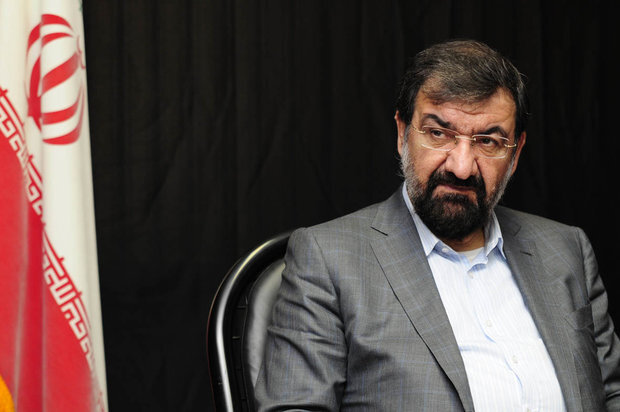Rezaee: Dialogue with ‘Satan’ is poison

TEHRAN – Mohsen Rezaee, secretary of the Expediency Council, has warned of the notion of talks with the United States, saying holding dialogue with Satan is poison.
“The executive branch and basically all the bodies in Iran are obligated to act under the framework of the establishment’s general policies,” Rezaee tweeted on Wednesday.
He added, “The establishment’s general policy regarding the U.S. is clear: Dialogue with Satan is poison.”
Iranian leaders refer to the U.S. as “the Great Satan”, or simply “Satan”.
Earlier on Monday, President Hassan Rouhani expressed readiness to negotiate with anyone if that would help resolve Iran’s problems.
“If I knew that going to a meeting and visiting a person would help my country’s development and resolve the problems of the people, I would not miss it,” he had said. “Even if the odds of success are not 90% but are 20% or 10%, we must move ahead with it. We should not miss opportunities.”
On Tuesday, however, Rouhani ruled out the possibility of talks with Washington, saying the United States must lift all its cruel sanctions against Iran and begin respecting the nation’s rights as a “first step” towards dialogue.
He stressed that the Islamic Republic will not engage in any negotiations for the mere sake of photo ops.
“We seek to resolve issues and problems in a rational way but we are not after photo ops. For anyone wanting to take a picture with Hassan Rouhani, this is not possible” unless that party chooses to set aside all the oppressive sanctions and respect the Iranian nation’s rights, the president said.
Rouhani’s remarks came after French President Emmanuel Macron expressed hopes for a meeting between the Iranian president and his American counterpart Donald Trump in the next few weeks.
Trump himself said on Monday there was a “really good chance” he and President Rouhani could meet in the coming weeks.
Tensions started to build up between the U.S. and Iran after Trump withdrew Washington from the 2015 deal, officially known as the Joint Comprehensive Plan of Action (JCPOA), in May 2018, and imposed sanctions against Tehran in a bid to put maximum pressure on the Islamic Republic.
The Trump administration has also made empty calls for talks, but the Islamic Republic maintains that as long as the sanctions are in place and the U.S. refuses to return to the JCPOA, negotiations will be meaningless.
The idea of talks has been rejected by all political factions within Iran, including the reformists who were in favor of the talks that led to the JCPOA.
Addressing Tuesday’s session of the parliament, Mostafa Kavakebian, a reform-minded lawmaker, reiterated that no talks will take place as long as the U.S. refuses to return to the JCPOA and “our money transfer has not been facilitated.”
“Some of our colleagues in the parliament are behaving as if President Rouhani is going to hold talks with Trump today,” said Kavakebian. “This is not true. Our condition is that no talks will take place as long as the Americans have not returned to the JCPOA.”
MH/
